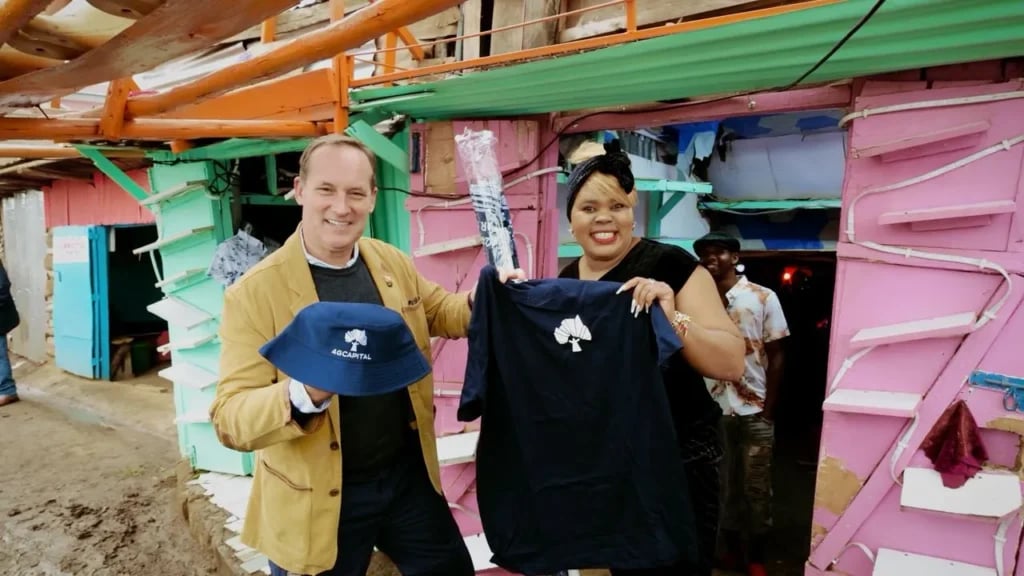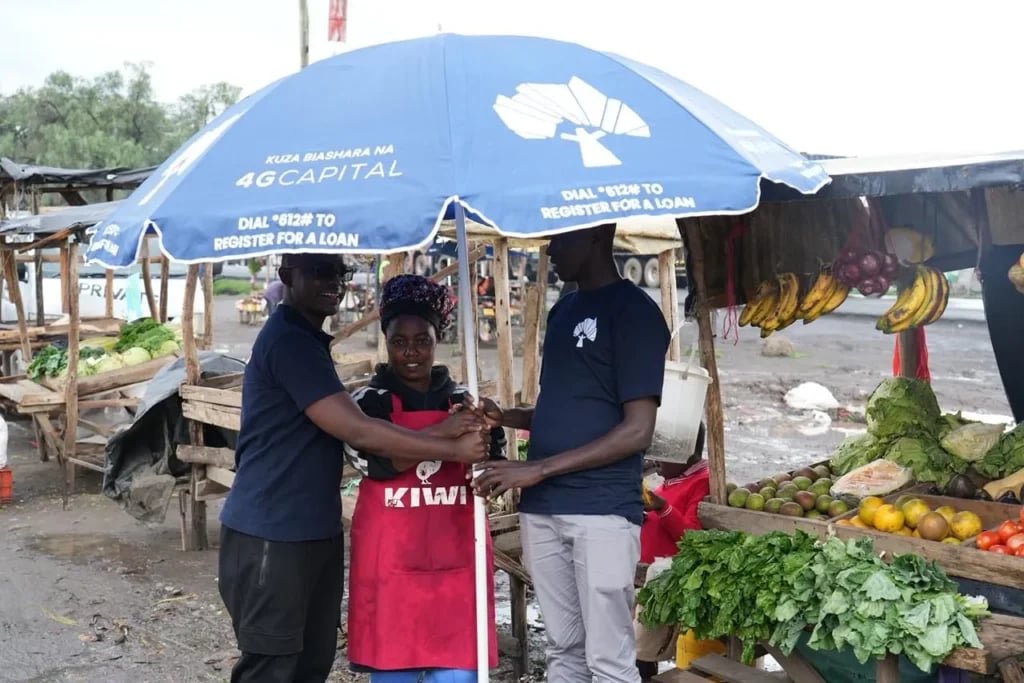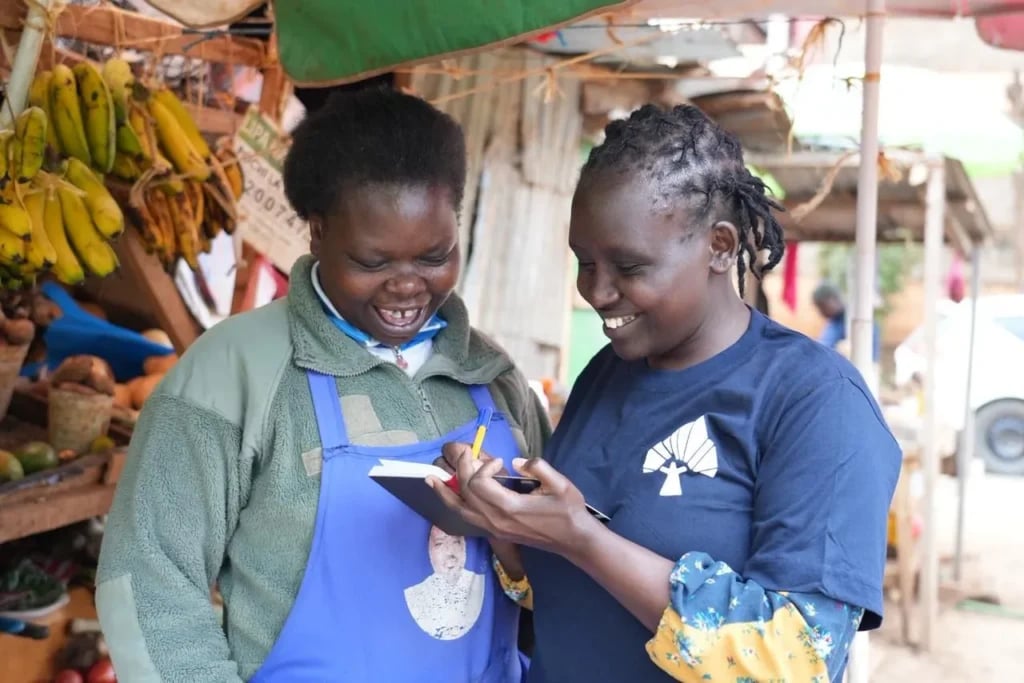On January 13, 2013, Wayne Hennessy-Barrett got off a plane in Nairobi with a notepad and a pencil.
He spent the first days of his visit walking through markets, talking to traders, and rented a car with a driver to cover more ground. He would stop by fruit stalls, business kiosks, and food vendors, asking traders about their days, how they handled credit, and what made running their businesses hard.
The story was almost always the same: business was steady, but working capital was tight. His notes piled up quickly, each page echoing the same struggle. Before long, he set up a small office in Wangige, a peri-urban town just outside Nairobi.
What he found convinced him of two things. Micro and small enterprises were everywhere, keeping households fed, transporting goods, and powering local economies. Yet they had no real access to fair finance. Banks demanded collateral they could not provide. Informal lenders offered credit on terms that kept them trapped.
Out of those notes and conversations, 4G Capital, a company that helps SMEs grow via short-term, unsecured working capital loans and free tailored business skills training, was born. “We were doing the initial loans just on a Nokia feature phone and an Excel spreadsheet,” recalls Hennessy-Barrett, the Founder and Executive Chairman of 4G Capital.
Twelve years later, the fintech has deployed $620 million in working capital loans to more than 600,000 small businesses across Kenya and Uganda that were excluded from the formal financial system. Last year alone, it disbursed $220 million, and this year, it is on track to reach $350 million. Today, 4G Capital serves more than 100,000 active customers at any given time.
“We think we’ve bottled an African solution to a global problem,” Hennessy-Barrett says. “The provision of working capital to micro and small enterprises to help them grow with capital and knowledge.”
4G Capital’s early days
The early days were scrappy. Hennessy-Barrett had come to Kenya as an employee of a South African startup that wanted to establish a lending business in East Africa. But while his employers wanted to pivot toward credit cards, he’d fallen in love with what was happening on the ground.
So, he led a management buyout.
“Utterly terrifying going from being a lifelong employee to being a first-time entrepreneur,” he admits. “And you learn an awful lot in a very short space of time.”
He invested his life savings into the operation, and the team steadily grew, from a four-man crew to six, then twelve. Today, 4G Capital has 1,600 agents across Kenya and Uganda. The company closed its seed funding round in January 2016 to support the buyout and growth. Since then, it’s been one foot in front of the other. It raised a Series C in February 2022 from LGT Lightrock.

That equity round helped the firm access the debt needed to grow the loan book. Now, 4G Capital is almost entirely funded in local currency through the issuance of commercial paper and relationships with local banks. A recent debt deal with Untapped Global closed in just three months because the lender could access 4G’s data directly via API and monitor loans as they were issued and repaid in real-time.
“Nobody closes a debt deal in three months,” Hennessy-Barrett says. “Normally, it’s like a year or 18 months.”
Starting with trust
Micro, small, and medium enterprises (MSMEs) are a large part of the African economy. In Kenya, they account for approximately 40% of the Gross Domestic Product (GDP) and employ over 70% of the working population. Across the continent, they represent the majority of businesses but consistently face one of the widest financing gaps in the world.
4G Capital recognised this gap firsthand and decided to start small, focusing on trust rather than scale.
Loan officers became a familiar presence in markets, meeting traders where they worked. A fruit vendor in Nairobi might borrow just enough to restock for the week. A boda boda rider in Kampala might cover a repair to keep his bike on the road. Alongside these loans came training on cash flow management, savings, and record-keeping. For many customers, this was the first time anyone had combined access to credit with business education.

“Our customers upskill and become more financially competent,” Hennessy-Barrett explains. “That means they can grow their business. They can then access larger loans from us and follow-on products.” On average, customers report 82% average increase in revenues, with their borrowing ability doubling over 36 months.
The company’s flagship product, Upia, is a 30-day secured loan with embedded business skills training. It generates about 90% of revenue. Teams of relationship managers walk marketplaces in pairs, onboarding businesses in 15 minutes and delivering loans within 24 hours. For repeat customers, loans arrive in under a minute after they request.
The second product, Kuza, focuses on retail financing. Through partnerships with Fast Moving Consumer Goods (FMCGs) manufacturers, distributors, and other suppliers, it extends credit directly to small retailers. Take the example of a distributor delivering beer or soft drinks to a neighbourhood shop. Instead of the shop paying upfront, 4G Capital steps in to cover the cost. The retailer then repays the loan over time. The process is fully digital, and today Kuza contributes about 10% of the company’s revenue.
Loan amounts range from $30 to $2,000, and every transaction is processed through mobile money platforms like M-Pesa, Airtel Money, or MoMo. The system is entirely cashless.
The repayment machine
Lending money is easy; getting it back is hard. Yet 4G Capital has kept defaults at only about 5%, outperforming industry rates. Between 95 and 97% of its customers repay on time.
The secret starts with lending to the right person for the right reason. “If you want to place a bet, you don’t want us,” Hennessy-Barrett says. “If you want to buy a sofa, you definitely don’t want us.”
But if you’re buying fabric to make school uniforms or sacks of potatoes to fry and sell as chips, 4G Capital is interested. The company uses a machine learning algorithm called EVA (named after Hennessy-Barrett’s daughter) to determine creditworthiness. The onboarding process by the field agents filters for business loans, not consumer spending.

When customers fall behind, 4G Capital has a decision tree. Most late payers are dealing with floods, failed harvests, medical bills, or funeral costs. “We understand the customer very well,” Hennessy-Barrett says. “And we help them get back on track.”
A small cohort of bad-faith customers who never intended to repay gets identified quickly. The company pursues legal proceedings when necessary. “In order to be good, you do have to be strong and disciplined,” he adds.
The company’s Net Promoter Score hovers between 55 and 70. It dips when life gets tough for customers or when system glitches happen during major upgrades, but it always bounces back.
Rebuilding the engine mid-flight
“This year is a build year,” Hennessy-Barrett says. “Next year will be a growth year, but we’ll still be building.”
That building has been literal. 4G Capital recently rebuilt its entire tech stack on Google Cloud Platform, where it now ranks among Google’s top ten clients in Africa. For Hennessy-Barrett, the investment in infrastructure is non-negotiable. “If you want a scalable, seamless front end, you need a sophisticated back end to support multipolar growth,” he explains.
The roadmap for 2025 reflects that thinking. The company plans to roll out a new customer app, introduce loan products tailored for larger businesses with longer repayment timelines, and deepen its partnership with micro-insurance provider Turaco to provide customers with access to coverage through a joint digital platform.
Expansion beyond Kenya and Uganda is in sight, but not before the necessary foundations are established: securing local financing, hiring top talent, navigating compliance, and setting up operations in new markets. An IPO also sits on the horizon, though Hennessy-Barrett insists it is a milestone rather than a target. “We don’t chase unicorn status or valuations,” he says. “The market will decide what we’re worth. Our focus is on serving customers and building the strongest company possible. If we get that right, the value will follow.”
There’s a massive opportunity here. Formal MSMEs in emerging markets face a financing gap of around $5.7 trillion, even worse for informal small businesses. 4G Capital’s vision is to first expand into other African markets, then take its model global. But for Hennessy-Barrett, the core never changes. “Everything begins and ends with the customer,” he says. “If our customer doesn’t succeed, we don’t succeed.”
Get passive updates on African tech & startups
View and choose the stories to interact with on our WhatsApp Channel
ExploreLast updated: October 11, 2025





